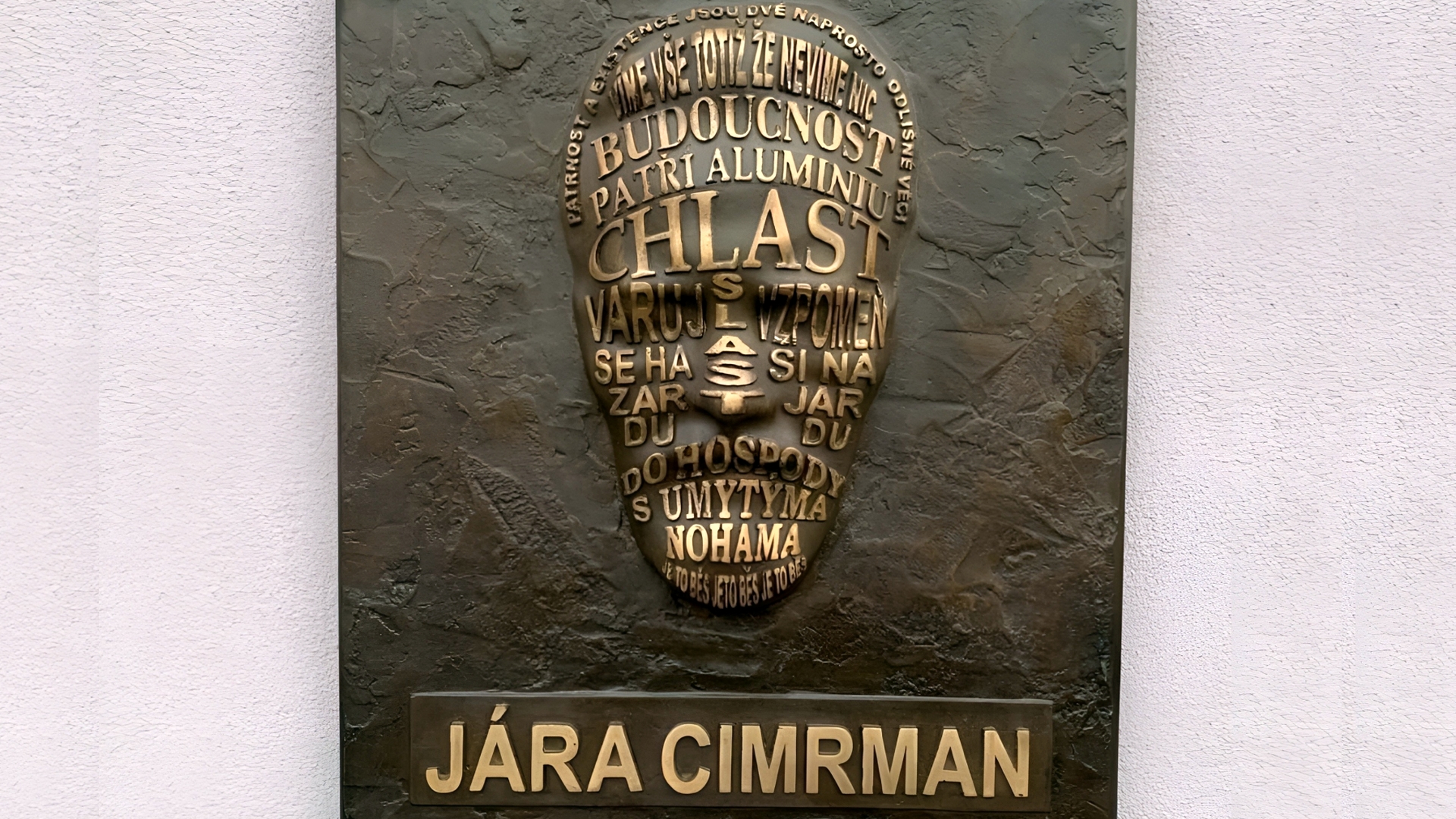Written by Klara Zatloukalova

Jaroslav Cimrman, better known by his nickname as Jara Cimrman or “the Master”, is a fictional character, a Czech universal genius, created by Zdenek Sverak and Jiri Sebanek, who has become a national hero and an icon of Czech culture.
The details of Cimrman character’s identity and life had been gradually revealed via radio shows, theatre plays, movies, and books since 1966, although his face remains until this very day unknown. He was allegedly born in Vienna between the years 1853 – 1884 into a poor family, who dressed him in his sister’s second-hand clothes and sent him to a girls’ school. Cimrman was believed to be a woman until he reached the age of 15, which, besides an inevitable identity crisis, presumably also triggered the emergence of his inner genius. He was unable to stop inventing and contributing to society ever since and is recognised as one of the greatest Czech playwrights, poets, composers, teachers, travellers, philosophers, inventors, detectives, mathematicians, and sportsmen of the 19th and early 20th century.
The character first appeared in 1966 on Czechoslovakian radio in a humorous programme called Nealkoholicka vinarna U Pavouka (“The Non-Alcoholic Wine Bar chez Spider”), where he was introduced by Zdenek Sverak as a sculpturer and driver of a steam roller, who exhibits run over, deformed objects in an inflatable pavilion as his artwork. In the following episode of the show, a fictional doctor Evzen Velebny (portrayed by Karel Velebny – one of the character’s creators) announced a ground-breaking discovery of a forged chest found within the walls of a renovated cottage in a fictional village of Liptakov. The chest allegedly belonged to a mysterious genius (later on revealed as Jara Cimrman himself) but was tragically destroyed in an attempt to uncover its content by an invited pyrotechnician.
In 1967, Zdenek Sverak, Jiri Sebanek, Ladislav Smoljak, and Milon Cepelka founded the Jara Cimrman Theatre (Divadlo Jary Cimrmana), which based its repertoire on the gradual revelation of the character’s life and work. The first play was called Akt (“The Act”) and was written by Zdenek Sverak, thus Jara Cimrman premiered in October, 1967. It follows a unique format, as the first part of the play consists of an academic seminar led by the so-called “cimrmanologists” (=experts studying Cimrman’s biography and legacy), who take turns in presenting their most recent studies and discoveries about the Master, followed by a comic dramatization of the previously discussed findings in the second part of the play. This format met with great success and became a staple for the following plays.
The first “mockumentary” about Jara Cimrman called Stopa vede do Liptakova (“The Trace Leads to Liptakov”) was filmed in 1969. The moderator of the mockumentary is played by Zdenek Sverak, who follows the Master’s left behind traces. He discovers Cimrman’s film scrolls, whose contents reveal the shocking truth about his inventions and biography, such as proof he was the one to film the world’s first movie five years prior to the Lumière brothers, or that he as the first man in history filmed the arrival of a train. The end of the mockumentary outlines the upcoming research of the Master’s work, who allegedly “did not know how NOT to craft”.
In 1983, Zdenek Sverak and Ladislav Smoljak directed probably the most iconic biographical comedy film about Cimrman called Jara Cimrman lezici, spici (“Jara Cimrman lying, sleeping”), which portrays the crucial events of Cimrman’s life in individual chronological chapters. The main plot revolves around a group of tourists, who come to the village of Liptakov to visit the museum of Jara Cimrman. Each tour stop presents a specific period of Cimrman’s life, which is then acted out by Zdenek Sverak in the main role as the Master himself.
Jara Cimrman and the mysteries regarding his life and identity soon became a national sensation. Although some might consider him a mere fictional figure of a rather unconventional kind, for the majority of the population he embodies the collective cultural values, humor, and mindset of the Czech nation. Such a statement can be supported by the fact that Jara Cimrman won a public vote of “The Greatest Czech” contest in the year 2005, however, due to his fictional nature, he was eliminated from the final ranking.